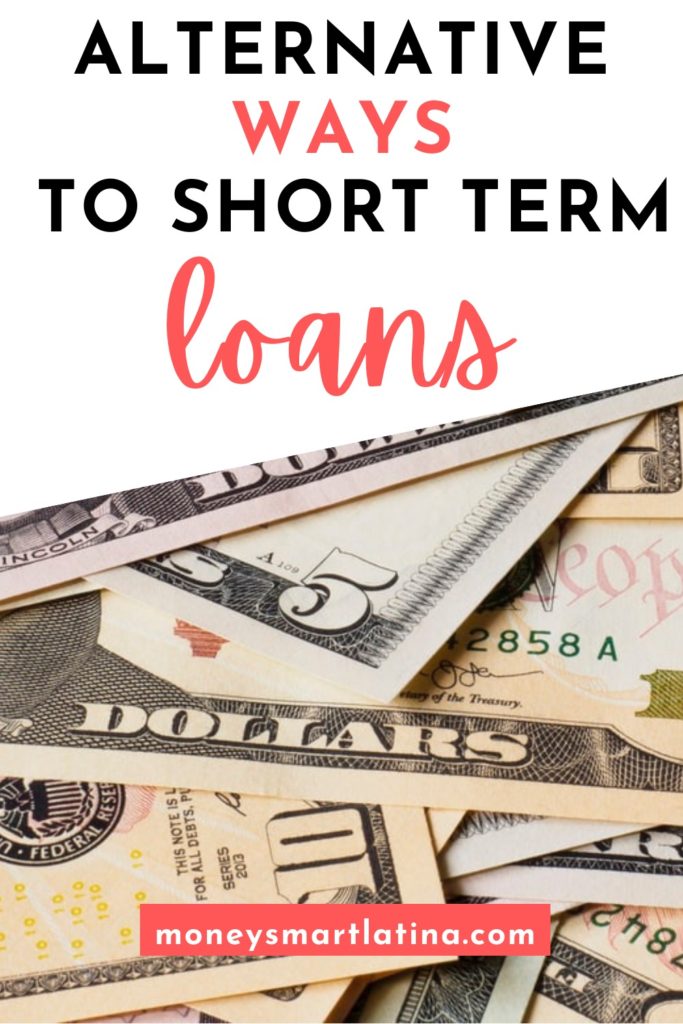
Short-term loans are the good and obvious solutions to rainy day issues: the type that requires more money than you have at hand but won’t drain you to pay back, such as your car or boiler breaking down. They are the thing we reach for if there is a bad month coming up and we need a little help getting through it.
Typically, short term loans cap at $500 and have to be repaid within 2-6 months. The carrot here is that a low credit score is generally accepted, the stick is that the interest can be very high. This is often not given too much consideration, since the point of a short-term loan is to get it paid off quickly.
But is there an alternative? Are there better options than the short-term loan? We take a look at the options for a quick, small sum of money beyond a short-term loan.

Overdraft
An overdraft is a very quick and easy way to gain access to money when you need it. If you already have a current account, you can apply for an overdraft. Today, the banks allow you to apply online or via an app and you can even get approved the same day.
But read the small print. It’s common that an overdraft will incur a small fee for the use of it, but it’s a very small fee in comparison to the interest gained on a short-term loan, even if you pay it off quickly. This can be a helpful option if you need money quickly whether you need a new boiler or a full tank of gas for an unplanned trip.
It’s so helpful, that if your current account doesn’t offer an overdraft, we would suggest you switch to one that does to make the future easier.
Your 401K
If you’re really in a bind, you can borrow from your 401K account. You can’t withdraw without interest and penalties, but most 401Ks offer loans without fees. You will need to contact your plan’s firm for an outline of the details, but by law, 401K loans are limited to $50,000 or 50% of your account balance. Between the two, it comes down to what is less. However, should you leave the job you’re in, the loan will be considered a withdrawal and will incur fees.
It’s a good option if you need a small amount of money for an issue that has cropped up and needs dealing with urgently. It won’t require a credit check, you’ll get your funds quickly, and your loan will be repaid by your ongoing 401K contributions, so you won’t even notice repaying the loan.
0% interest credit cards
A 0% purchase credit card will solve a manner of sins, but you should take a close look at the fine print before you jump in.
0% interest credit cards will allow you to make purchases throughout the introductory period with no interest. But the important point there is that it will not be forever. How long this generous period is can range from six to 18 months, and your APR will resume, determined by the state of your credit score, making it a bad option if you have bad credit.
It’s a useful option if you are needing to make a large purchase, like the replacement of a TV or laptop, but you need the time to pay it off. It’s also helpful if you are looking to wipe out some credit card debt, as it can sometimes offer no interest on balance transfers, making it easier to repay. But make sure you get the right policy that offers balance transfer with no interest or fees, as some don’t.
Credit builder card
A good alternative to a short-term loan and a 0% interest credit card is a credit builder card. The aim of it is to restore your credit, while loaning money for you to spend as you need to. You might not have the option of borrowing a lot, but you can improve your credit score without putting yourself into more debt via your credit card company.
They’re a good option for people with a bad financial history as they are more likely to be accepted due to the nature of the card. As you repay your loans on time and in full, you will see your credit score go up since you are proving you can repay your debt.
Guarantor loan
If you have someone eligible that can vouch for you, you can get a guarantor loan. This means that if you stop paying your loan, your guarantor will have to take over any repayments, giving the lender more security.
It’s a matter of trust that shouldn’t be abused, but it will allow you to borrow more, and you will have a higher chance of successfully applying. If you have poor or no credit history, it’s a good option as you are likely to be accepted. Plus, it’s likely to boost your credit history as you make repayments.
However, aside from the financial pressure you’d put on your guarantor if you were to stop paying, guarantor loans come with their own problems, like high interest rates when compared to personal loans and it’s not just your credit score that could be affected. If your guarantor can’t make repayments, their credit score could fall alongside yours.


